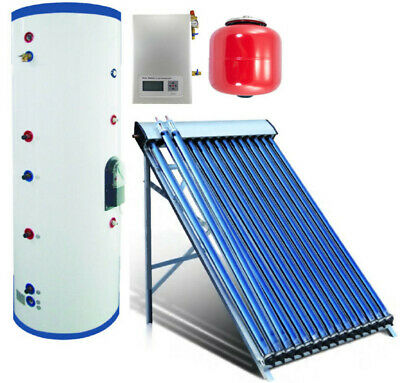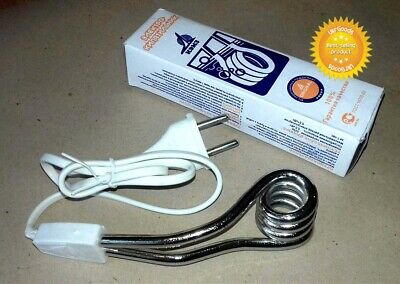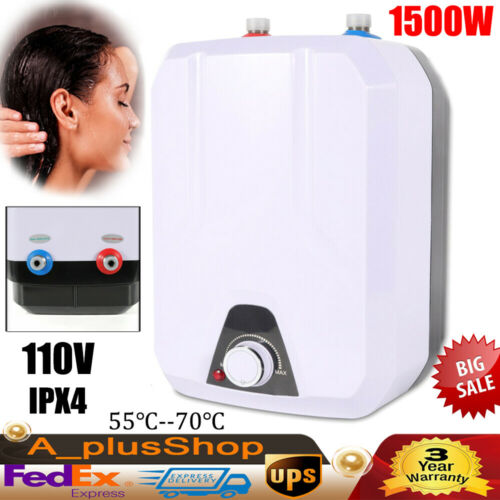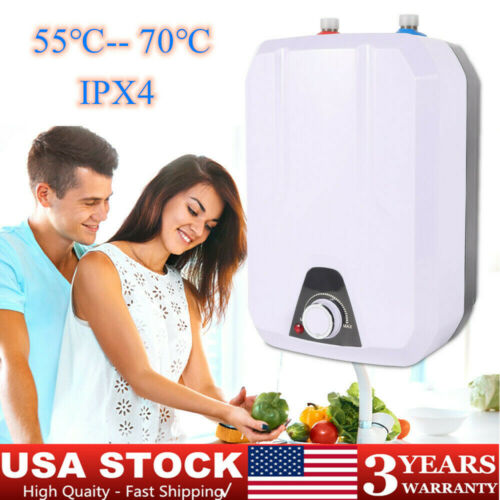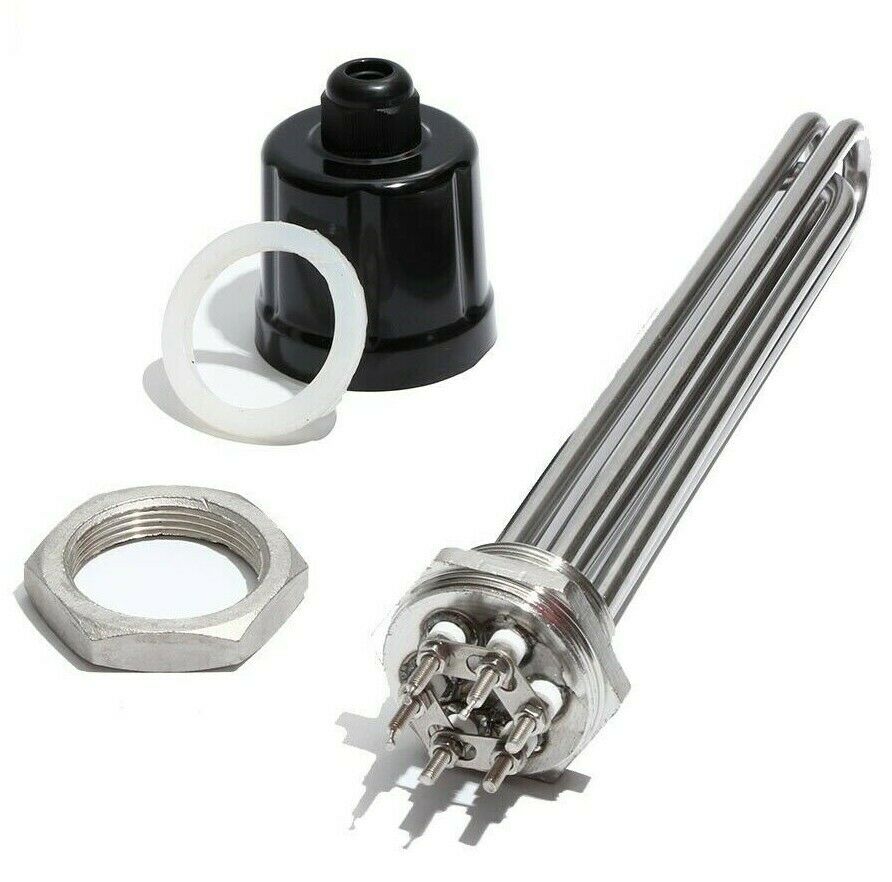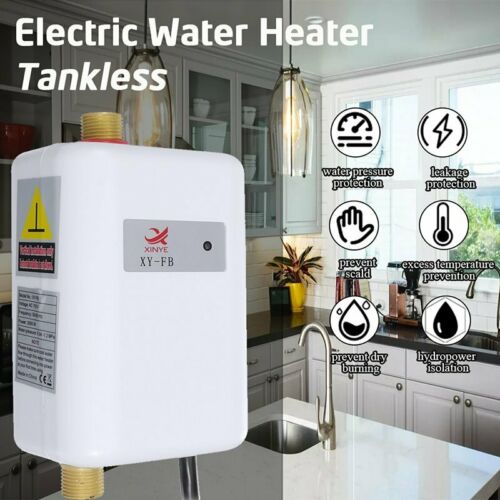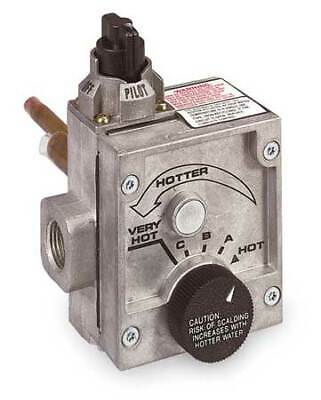-40%
2KW Off-grid Stand Alone PV Photovoltaic Solar Hot Water Heating Heater MPPT
$ 717.81
- Description
- Size Guide
Description
No More Frost in WinterNo More Overheat in Summer
No More Maintenance
No More Plumbing
Photovoltaic Water Heating
with MPPT + Mains Backup
Charge Normal 230VAC Element Directly
By 8x260W Solar Panels
This Unit For Water Heating Only
What is a PV Water Heater?
You know this situation... a hot summer day, not one cloud in the sky, the sun is shining and there is nowhere to hide, your car is blazing hot, so you can´t even keep your hands on the wheel, and while you are having shower in the afternoon, you are thinking: Why do I even pay for heating of water? Why do I consume gas, or electricity, when the sun heats for free?
You are not the first ones to think about this. After all, the sun collectors for heating water aren´t new. However, collectors have their disadvantages. They work with the warmth from the solar radiation, so they are not very effective during winter. Moreover, they are quite demanding to install – all those pipes, valves, pumps, and necessity to watch the whole system in winter, so it wouldn´t freeze and in summer as well, so it wouldn´t overheat.
Let´s try to think of a different way. What if we used a photovoltaic panel instead of solar collectors? Exactly those that are used in power plants. Their technology is getting better, thanks to boom of solar power stations, their price is getting lower. Moreover, they use light, not warmth, so instead of special transfer liquid and pipeline, they use electric cable. Also, they don´t freeze in winter and don´t overheat in summer, so they are pretty much maintenance-free. Electricity, which they produce, could be used to heat water in boilers.
Sounds like a good idea, doesn´t it? But if we connected a photovoltaic panel to a heater, it wouldn´t be very effective – sometimes, it would heat water too much, sometimes not at all. We need some kind of device which could process this energy effectively, i.e., send it to the boiler when we need to heat water, use the rest of it (e.g., to recharge accumulators) but also, when there isn´t enough electricity from the panels, it would be able to use electricity from the electrical network, so we wouldn´t end up without warm water.
PV Water Heater is just the right control unit. At the beginning of the whole system there are photovoltaic panels, at the end there is your common electric boiler, and in between there is a PV Water Heater, which controls everything, so you always have enough warm water, which has been heated predominantly, by the Sun. Surplus of energy can be used, e.g., to recharge accumulators, deficits can be covered by electricity from the distribution network.
The PV Solar Heater also considers the fact that the sun doesn't always shine with the same intensity. Therefore, it tracks so-called point of maximum power of the photovoltaic system (this technology is known as MPPT, Maximum Power Point Tracking), which is a way how to process current and voltage from the photovoltaic panels according to the intensity of the sunshine, so the output of panels is at its maximum at all times.
Yes, it´s true. No collectors, pipelines, heat exchanger, circulating pumps, special heat transfer liquids and no need of frequent maintenance! Only photovoltaic panel, electrical cable, control unit and an ordinary electric boiler.
BASIC PARAMETERS
Recommended boiler volume: 100 - 200 litres
Photovoltaic panel power: approx. 2 kWp
Typical number of panels: 8 x 260 Wp
Recommended heating element: 230VAC 2 - 2.5 kW
Grid heating backup: YES
Control: touchscreen
Production / consumption monitoring: YES
Monitoring history: 10 days
Utilization of energy surpluses: NO
TECHNICAL DATA
Input open-circuit voltage (limits): 200 - 340 V
MPP tracker range: 140 - 310 V
Maximum current: 9A
Maximum efficiency: 99%
Thermal fuse: YES electronic
Mains connection: 230V / 5OHz, 16A fuse
Ingress protection IP20
WARNING
We only recommend the number and power of photovoltaic panels. Panels are available in various designs on the market, and if the technical requirements are met, it is not necessary to follow the recommended panel performance. The maximum idle input voltage must be observed in all circumstances - the negative thermal coefficient of the PV panels must be taken into account!





